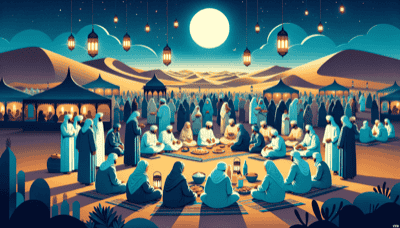We're here to help you keep count of the days to or since a date. Just click the button below and enter your chosen date to get started. Also choose the suggested days or search for a special day above #countingthedays

Overview: Eid al-Fitr, also known as the "Festival of Breaking the Fast," is a significant religious holiday celebrated by Muslims around the world, marking the end of Ramadan, the Islamic holy month of fasting. In Burkina Faso, a country with a substantial Muslim population, Eid al-Fitr is observed with great reverence and communal spirit.
History and Traditions: The origins of Eid al-Fitr are traced back to the Islamic prophet Muhammad, who established the festival as a day of feasting and gratitude after the completion of Ramadan. In Burkina Faso, as in other Muslim-majority countries, this tradition has been observed for centuries.
Celebrations: On this day in Burkina Faso:
Morning Prayers: Muslims gather for early morning prayers (Salat al-Eid) at mosques or designated prayer grounds. It is a time for communal worship and reflection.
Charitable Giving: Known as Zakat al-Fitr, giving to charity is an important aspect of Eid celebrations. It ensures that even the less fortunate can join in the festivities.
Feasting: After fasting during Ramadan, families prepare elaborate meals to enjoy together. Traditional dishes are shared with relatives and neighbors.
Dress: People often wear new or their best clothes to symbolize renewal and purity.
Visits: It is common for people to visit friends and family throughout the day to exchange greetings and gifts.
Cultural Integration: In Burkina Faso's culturally diverse society, Eid al-Fitr serves not only as a religious observance but also as an opportunity for social cohesion among various ethnic groups.
Eid al-Fitr reflects both religious devotion and cultural richness in Burkina Faso. It's a time when Muslims come together to celebrate faith, community bonds, and mutual generosity.